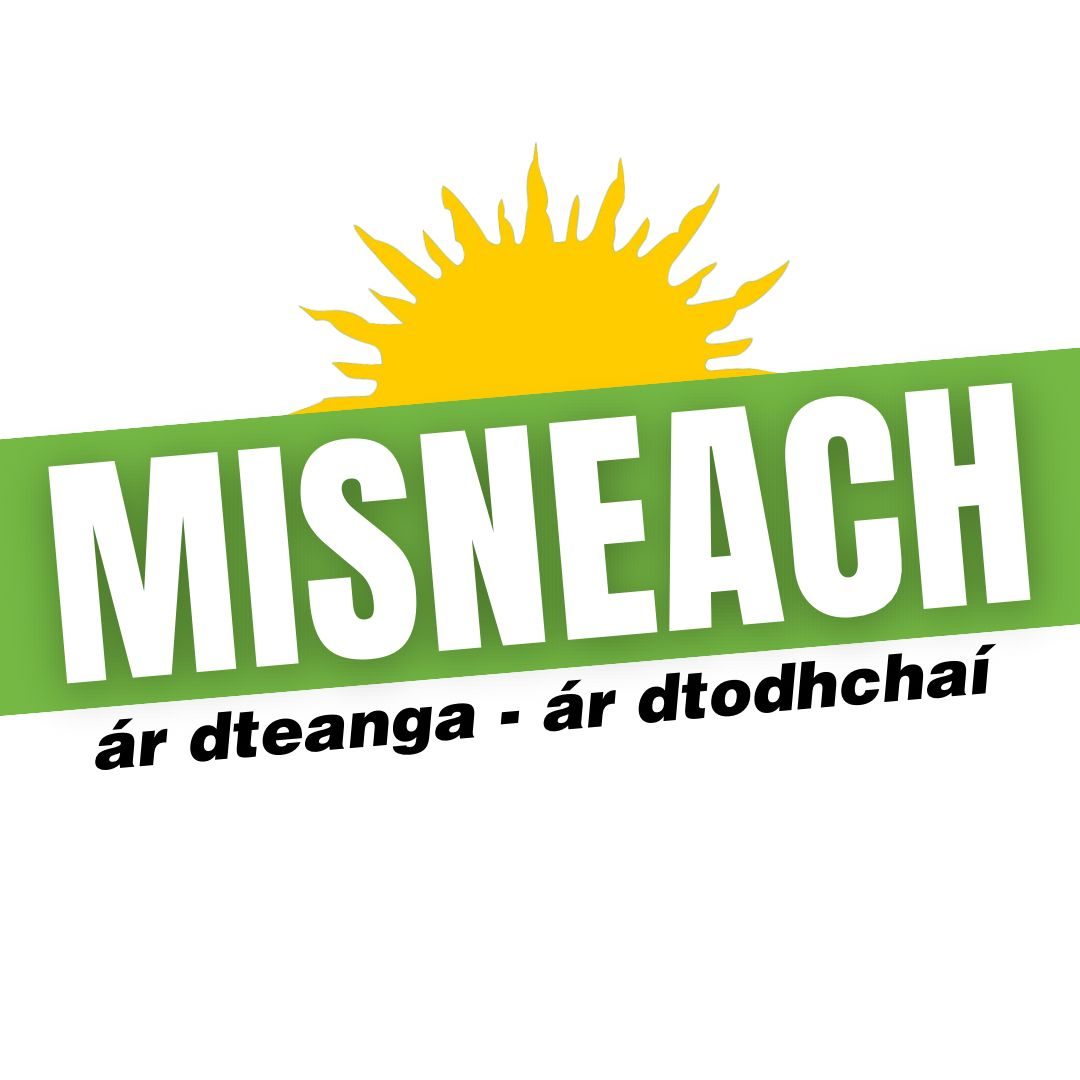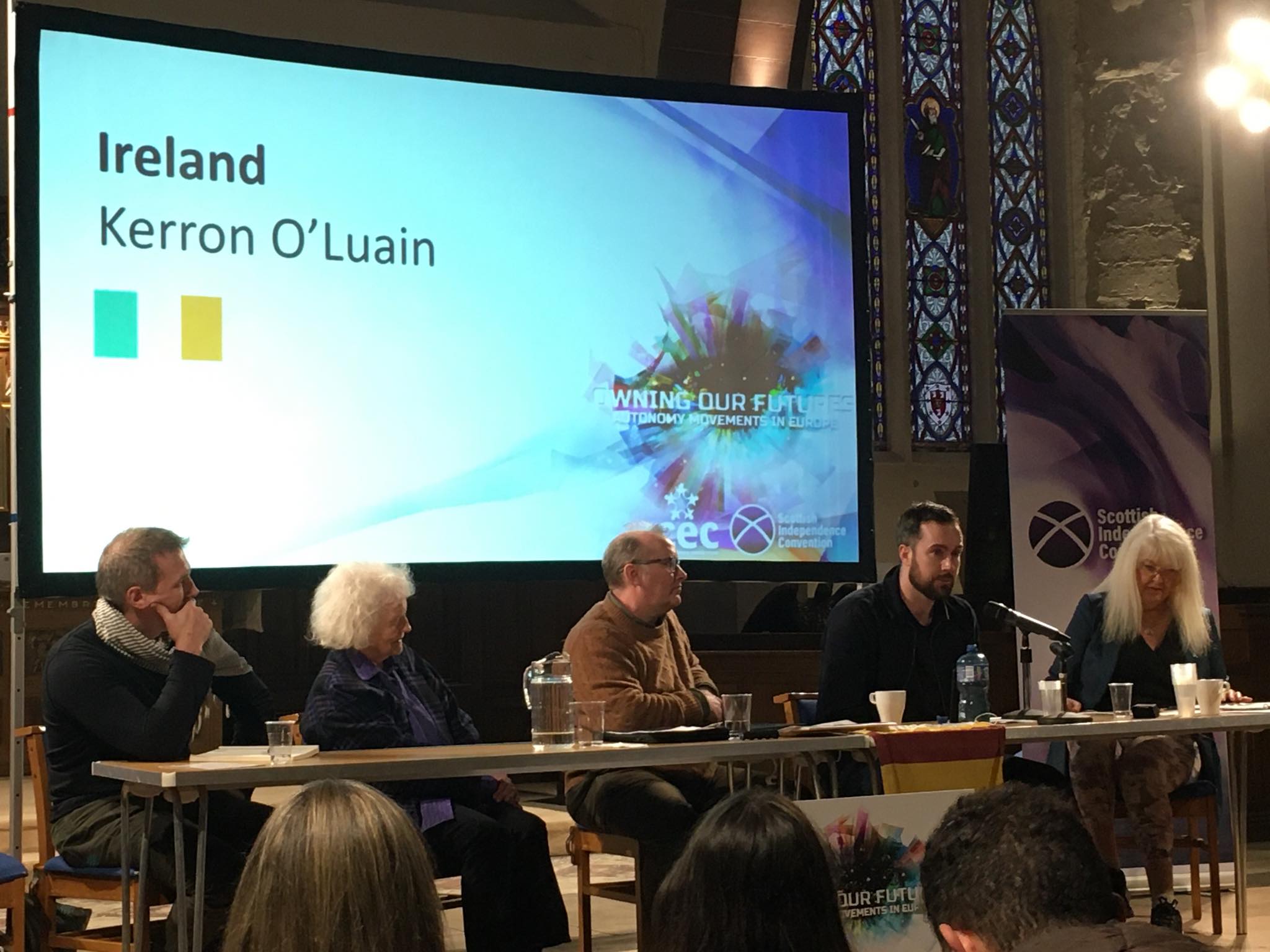Thug Rúnaí Misneach, Kerron Ó Luain, óráid uaidh ag comhdháil dár dteideal “Winning Our Futures” a d’eagraigh ICEC agus an Radical Independence Convention i nDún Éideann ar an 5ú Deireadh Fómhair. Tháinig ionadaithe as 15 náisiún atá faoi chois nó gan stát san Eoraip le chéile chun dul i mbun plé stráitéiseach faoi thodhchaí na Mór Roinne.
Móran taing, go raibh míle maith agaibh, thank you, for your invitation to speak on Ireland’s past, present, and future. Over the next few minutes, I’ll provide an overview of the key issues shaping the nation’s trajectory.
Ireland’s history is deeply intertwined with colonization, especially from the sixteenth century onwards when it became a testing ground for British imperialism. English policies aimed to suppress Irish language, culture, and political autonomy. The “plantation” policies, for instance, displaced native Irish populations, and in schools, Irish children were subjected to indoctrination, such as reciting verses that celebrated being “a happy English child.” The goal was clear: to either assimilate or eradicate Irish identity.
The British were only partially successful as various forms of resistance emerged over time—some militant, some constitutional, and others focused on cultural and linguistic preservation.
However, the struggle for independence was also only partially successful. The Irish Revolution of 1916-1923 ended with partial autonomy for 26 of the 32 counties, but partition left the North under a supremacist Protestant government. Britain maintained influence in the South by supporting conservative forces during the 1922-23 Civil War. As a result, Kevin O’Higgins, one of the leaders of the conservative wing, later claimed they were “the most conservative-minded revolutionaries that ever put through a successful revolution.”
The legacy of colonialism, and the failure to forge a truly radical path, still haunts Ireland. The division of the island has stifled democracy, rather than stimulating it, and exacerbated economic imbalances. The West, where the Irish language remains strongest, has been hit hard by emigration due to a lack of economic opportunities, while Dublin dominates much of the country’s economic activity. Meanwhile, the Irish elite, often serving the interests of global financial powers rather than the local population, have shifted their allegiances from Britain to U.S. multinational corporations.
This has led to an economy overly reliant on foreign direct investment, with dire consequences for ordinary people. Housing, healthcare, education, and the cost of living are in crisis, and this has left room for the rise of fascism. In the North, the intransigence and threats of Unionist elements hold back self-determination, progressive change and deny Irish speakers their basic language rights.
In the South, the use of Shannon Airport for the transport of arms to the Israeli Zionist state, facilitating the slaughter of Palestinians, and the increasing military influence of NATO, the EU, and the US, threatens Ireland’s long-standing policy of neutrality. This policy, rooted in an anti-colonial understanding and a rejection of empire, is at risk of being undermined
The Scottish Gaelic poet Sorley MacLean once referred to the “bitter legacy” of colonialism, noting how it endangered indigenous languages, drove emigration, and empowered “the porters of international big business.” This same colonial legacy continues to shape Ireland’s struggles today.
That said, if autonomy had not been gained in 1922, the challenges facing Ireland – particularly the social problems I alluded to – would, without doubt, be far greater, and neutrality would not even exist. We would be unwilling participants in Empire.
Looking to the future, there is reason for optimism. Demographic shifts in the North of Ireland have made the possibility of a united Ireland more realistic than ever before. Even right-wing and centrist political parties in the South have little opposition to the idea, though many underestimate the challenges ahead.
The Good Friday Agreement of 1998 stipulates that a referendum on reunification can only take place if the British Secretary of State for Northern Ireland believes a majority would vote in favour of it—a hurdle that will not be easily overcome.
While Ireland has come a long way from its days under colonial rule, the country still grapples with the effects of that inheritance. Nevertheless, with increasing momentum towards reunification and an increasingly left-leaning youth, not as shackled by a post-colonial syndrome as previous generations, the country stands at a pivotal moment in its history.
James Connolly, born in Scotland to Irish parents in Cowgate in this city, spoke about a rejection of centralised and imperial states when he referred to ‘a free federation of free peoples’. Ireland, like the other nations gathered here today, has an opportunity to forge such a ‘free federation’ in the coming years. In fact, we must – the alternatives will be catastrophic. So we must struggle for self-determination, democracy, for the republic and for true decolonisation, free from external influence and Empire. Bíodh Misneach againn. Beir Bua.



